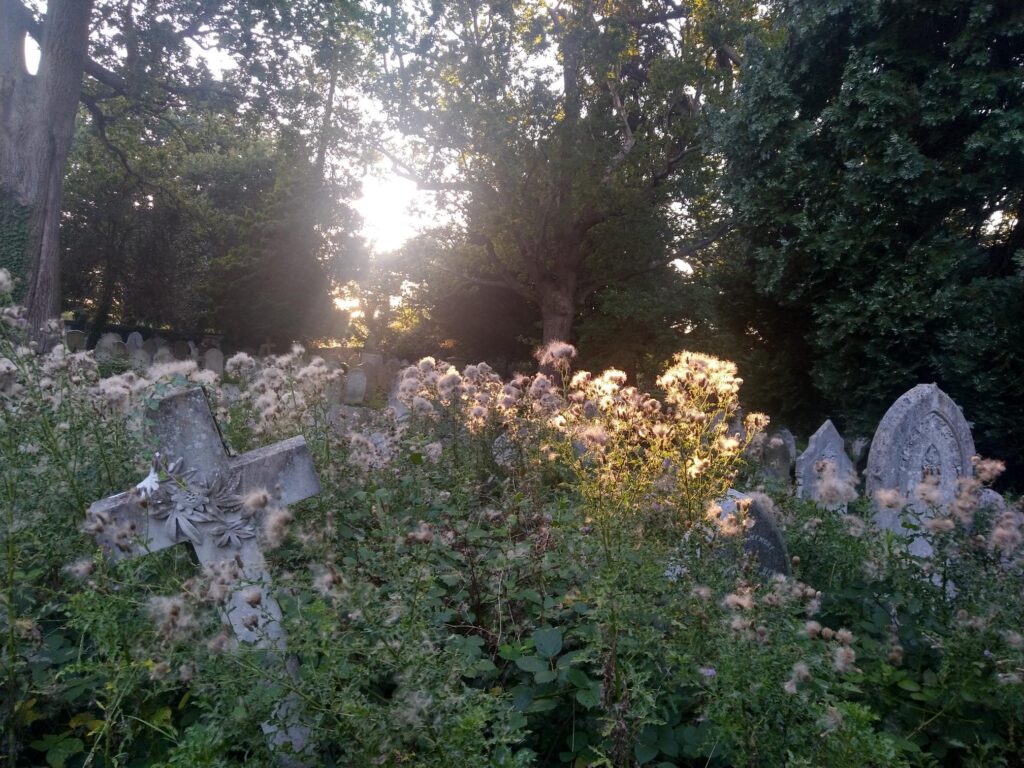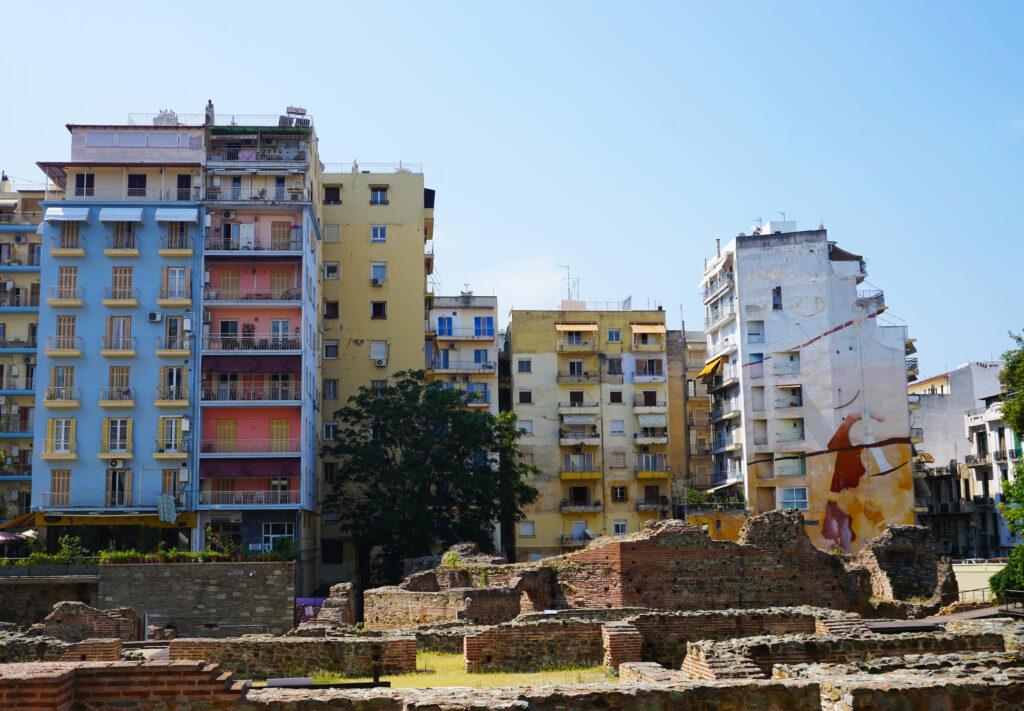By Ailish Jane
Listen to The Sense of Place Podcast here.
I have had an interest in sense of place for as long as I can remember – yet, for many years I didn’t realise other people experienced and explored it too. Sense of place describes the emotive bonds and attachments people develop or experience in particular environments and locations. Although an internal feeling, it can be expressed in many ways, such as through music, art, writing and photography.
A powerful memory I have of experiencing these feelings from childhood was when my brother and I were allowed to go into our great-grandparents’ shed at the bottom of the garden. To enter, you had to use an old-fashioned skeleton key. Inside, on the bench where my great grandfather would have worked, were lots of old dusty tools and newspapers from before I was born.
I had a strange fasciation whenever we had the opportunity to go in there. I was struck with feelings of melancholy, bittersweet nostalgia, and slight disquiet. My great grandfather died long before I was born, and yet there sat his things from decades earlier which looked like they had been put down ready to use again.
The shed had a small lamp, but other than that, it was very dark. If it was sunny, a small ray of light would shine through one of the windows, adding to this strange atmosphere. I imagined what he might have been like, and whether it was this dusty and dark, when he would have worked down there. The old papers with local news were also of interest – so important at the time – pictures of people smiling, annoyed, or promoting long forgotten businesses, all now gathering dust. The shed was a window into a time that had gone, but was still somehow there, undisturbed.

Many years later, I went to university where I studied archaeology and heritage, and this is when my eyes were opened to terms like ‘psychogeography’, ‘phenomenology’ and ‘liminality.’ I realised these feelings I had were explored and researched academically. Being a student, I was lucky that period in my life also allowed me to indulge in non-academic forms that explored these feelings. I came across the likes of Portals of London, a blog exploring London’s inter–dimensional gateways, Ian Rawes; a sound recordist behind The London Sound Survey which catalogued and recorded the dying sounds of London, and finally urban explorer and photographer Cindy Vasko, who travelled the length of the USA exploring abandoned sites. They all went on to become guests on the podcast.
It was during this time I decided I wanted to make something that shone a light on the people who explored these feelings. But what could I call it? Then, one day, my lecturer mentioned the term ‘sense of place’ in a conversation with me, and it all clicked into place. All of these people, in their own different ways, were trying to explore and understand a sense of place. That term perfectly describes what I wanted the project to be.
I started working on the podcast properly in December 2017 after a magazine article about podcasts gave me the push to make my idea a reality. For quite some time, these ideas sat as a Word document on my computer, as I researched the best way to record the podcast, saved up for a new laptop, proper microphone, and of course, approached potential guests! I released the first episode in April 2019.
Making the podcast has been an amazing experience for me. I have been fortunate to speak with people whose work I had admired from afar, and it has also allowed me to engage with like-minded people who share the same passion for ‘sense of place’. Every guest I have had a conversation with has been a pleasure, but one I enjoyed immensely and has led to a lot of messages from listeners was my discussion with Bob Fischer about Hauntology.
Hauntology originated as a philosophical concept introduced by Jacques Derrida in his 1993 book Spectres of Marx. Put simply, it refers to the persistence of our past presenting itself in the future, in the manner of a ghost. It also explores feelings of nostalgia, childhood disquiet and lost futures through music, art and writing – with a heavy focus on a 1970s childhood.
I think the reason this episode resonated with people so much was Bob’s ability to put these unusual feelings into words. Taking my childhood experience in the shed, for example, that felt like such a unique experience at the time. I didn’t think anyone would understand those strange feelings I had. One thing Bob said to me about Hauntology and people’s fascination with the recent past is that it is ‘just out of reach’ – you were so close to living in that era, you see the remnants of it in objects, photos, newspapers, but you will never get to experience or live it despite being so close.
I’ve learned so much from making this podcast and connecting with listeners. Foremost, I have come to realise that ‘sense of place’ is a universal feeling. It doesn’t matter what decade you were born in, or where you live, hearing listener’s stories from childhood, or even adulthood, it seems everyone has had their ‘shed’ moment. It is a feeling that can connect us all.

Ailish Jane is a podcaster from the UK. She hosts and produces The Sense of Place Podcast, which explores our sensory perception of places and spaces. Ailish has a master’s degree in Cultural Heritage and an undergraduate degree in Archaeology. The Sense of Place Podcast is her passion project. With her love of podcasts and all things ‘sense of place’ the idea to combine the two seemed only natural.
Listen to The Sense of Place Podcast here.
The podcast guests include writer, publisher and arts producer Tom Chivers, urban sociologist Alex Rhys-Taylor, writer and broadcaster Bob Fischer, the programme manager of the Rambler’s project ‘Don’t Lose Your Way’ Jack Cornish and many many more.
